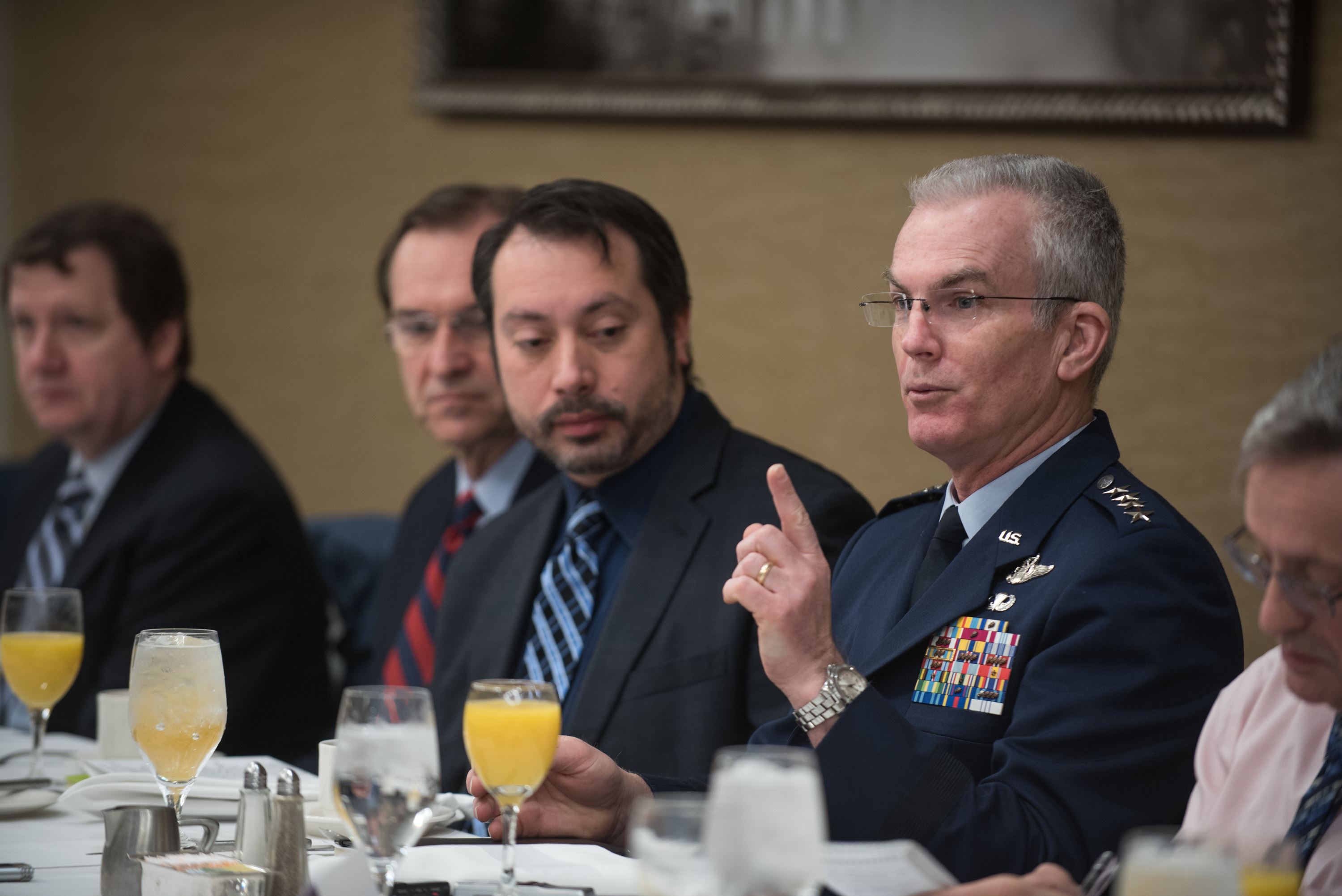
Air Force Gen. Paul Selva, vice chairman of the Joint Chiefs of Staff, makes a point at a Defense Writers Group breakfast in Washington, D.C., Jan. 30, 2018. DOD photo by Army Sgt. James K. McCann.
A leaked, “pre-decisional” draft of the Nuclear Posture Review was misinterpreted by writers who deduced from it that the US will respond to any cyber attacks with nuclear weapons, the Vice Chairman of the Joint Chiefs of Staff told reporters Tuesday. He also waved off the interpretation that the NPR calls for new, small-yield weapons that some writers worry could lower the threshold for nuclear war.
Rather, Gen. Paul Selva said, the US may respond with nuclear weapons to a cyber attack of grand proportions that results in many deaths or the destruction of US infrastructure, or “interferes” with nuclear command and control or warning. But the interpretation that the US would answer any cyber attack with nuclear weapons is not true, he said. He also said the NPR doesn’t call for new low-yield nuclear weapons in order to have a more usable nuclear capability to retaliate for cyber attacks, as some have written, based on the leaked document.
The actual document, which is expected to be released this week, “is largely consistent with our thinking about nuclear deterrence, going back 70 years,” and the interpretation that a cyber attack would be met by a US nuclear strike “is not supported” by it, Selva said.
He paraphrased the NPR, noting that it says the US reserves the right “to use nuclear weapons when our national interests—our population, our infrastructure—are attacked with significant consequence.”
However, Selva said, “there was a view that that was too ambiguous, and so what we went on to say was, this will include—but is not limited to—non-nuclear strikes on our population, our infrastructure, that of our allies and partners, or the command and control indications of warning that are important to our detectionion of an attack. We never said ‘cyber.’” He added that a search of the document turned up fewer than 10 uses of the word “cyber,” and not in the context some writers have suggested.
“Context matters,” Selva said. A cyber attack could have “strategic consequences,” if it kills a lot of people, destroys critical infrastructure, or disrupts the nuclear deterrent enterprise or missile warning, he explained. “We were suitably ambiguous in that space before, so what we tried to do was say, ‘if you do this … and it has these kinds of widespread consequences, we reserve the right to respond.” The same idea appeared in the 2010 NPR, “we just didn’t say what we meant.”
He added that the US has had low-yield nuclear weapons in the inventory “for decades,” and this fact does not “in and of itself, lower the threshold for use of nuclear weapons.”
In fact, he argued, the availability of lower-yield weapons “deters our … adversaries from actually believing that they could engage in a limited nuclear strike,” if they thought the US would not launch big weapons in response to the use of a small one.
“So, the declaratory language and the inclusion of a new low-yield option are actually designed to raise the threshold of a potential nuclear attack,” Selva argued. He said it’s “important to think that through carefully, from the perspective of” a potential enemy.
